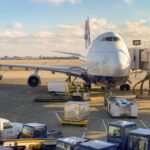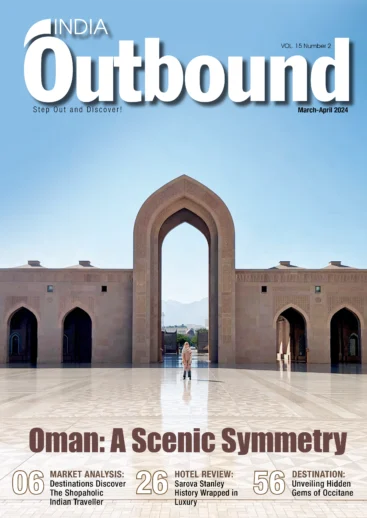
Sustainable Aviation Fuel (SAF) is critical to achieving the Long-Term Aspirational Goal (LTAG) of NetZero carbon emissions by 2050
To help the air cargo sector keep growing in the face of a difficult operating environment, the International Air Transport Association (IATA) has identified three goals, that includes sustainability, digitisation, and safety, outlined in the 16th World Cargo Symposium (WCS), held recently in Istanbul.
According to a press statement by IATA, Sustainable Aviation Fuel (SAF) is critical to achieving the Long-Term Aspirational Goal (LTAG) of NetZero carbon emissions by 2050, in line with the industry’s commitment adopted in 2021. 65 pc of carbon abatement will come from SAF, however, production levels remain challenging. IATA called for government incentives for production.

Brendan Sullivan
“Air cargo is a different industry than the one that entered the pandemic. Revenues are greater than they were pre-pandemic. Yields are higher. The world learned how critical supply chains are. And the contribution of air cargo to the bottom line of airlines is more evident than ever. Yet, we are still linked to the business cycle and global events. So, the war in Ukraine, uncertainty over where critical economic factors like interest rates, exchange rates and jobs growth are concerns that are real to the industry today. As we navigate the current situation, air cargo’s priorities have not changed, we need to continue to focus on sustainability, digitalization, and safety,” says Brendan Sullivan, IATA’s Global Head of Cargo.
IATA outlined three other areas where it was working to support the energy transition of the industry, which includes supporting effective carbon calculations and offsetting. Further, expanding the IATA Environmental Assessment (IEnvA) and developing environmental, social and governance (ESG) related metrics, according to IATA, will also enable energy transition.
Air cargo needs to continuously improve its efficiency. The area with greatest potential is digitalization, where IATA outlined three goals. The first priority was 100 pc airline capability of one record by January 2026. This initiative will replace the many data standards used for transport documents with a single record for every shipment. IATA says it is also important to ensure digital standards are in place to support the global supply chain. The final aim was to ensure compliance and support for customs, trade facilitation and other government processes that are increasingly digitised.
IATA outlined three safety priorities for air cargo, beginning with stopping rogue shippers. Ensuring recognition from governments of a single standard to identify lithium batteries in cargo and accelerating the development of a test standard for fire-resistant aircraft are among some other priorities.
“Alongside sustainability and efficiency is safety. The agenda for air cargo continues to be dominated by lithium batteries. A lot has been done. But, quite honestly, it is still not enough,” says Sullivan.
“Air cargo is a critically important industry. It helps build a better future for the people of the world. It’s an industry that saves lives, delivering aid and relief to those in need. The industry mobilised to support those affected by the earthquakes in Syria and Türkiye. Working together to ensure that air cargo remains a reliable and efficient means of providing support to those in need, while simultaneously strengthening our global supply chains and contributing to the sustainable development of our economies is essential,” added Sullivan.
















